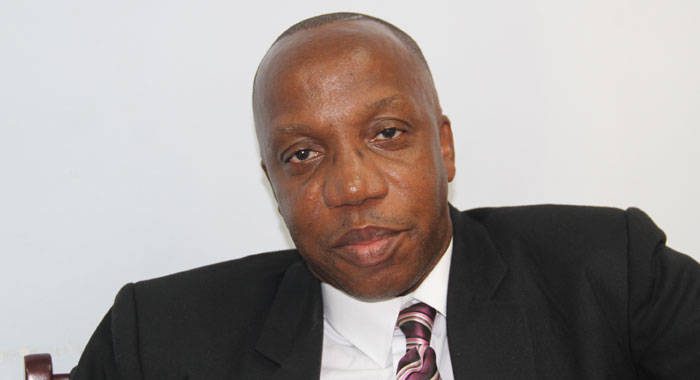Senior Magistrate Rickie Burnett on Monday expressed concern about the movement of cases through the criminal justice system.
Burnett, sitting at the Kingstown Magistrate Court, noted that an accused person might appear before him several times before a trial could get underway, and even as police investigations are yet to be completed.
He made the observation after inviting prosecutor Police Constable Corlene Samuel to make her application for adjournment as the court commenced Monday morning.
After hearing the second request for an adjournment because the case file was yet to reach the prosecution, the magistrate asked the prosecutor to enlighten him about how a file moves through the system.
On hearing Samuel’s explanation, the magistrate asked if the prosecution usually has an incomplete file when an accused person enters a plea.
The prosecutor said this is often the case.
Burnett said his concern about this is that the parties in a matter could be in court four or five times before the matter is heard.
“I am not sure that is fair to the defendant,” Burnett said and expressed hope that this can be looked into.
In the case that followed immediately after the magistrate’s initial comments, the prosecutor asked for an adjournment because the plaintiff was not in court, having not been summoned.
“That is the point I am making” said the magistrate, noting that had the defendant been absent, the Crown would have applied for a bench warrant.
“The process is not fair,” the magistrate commented.
And the magistrate could not have spoken any sooner for shortly after, the prosecution applied for a bench warrant for a defendant who was absent.
Samuel, however, said that in that case the defendant had been summoned to appear in court.
In that case, as well, the virtual complaint was using a crutch because of a leg injury.
“This is what could happen. You have a complainant who has a difficulty,” the magistrate said, referring to the fact that the plaintiff was using a crutch.
“He has to journey to come to court only to hear that investigations might still be going on,” the magistrate said.
The plaintiff in that case told the court that he lives in Richland Park and came to court notwithstanding a broken leg.
“Look at my condition,” the aggrieved man said.
‘Cart before the horse’
Lawyer Grant Connell was sitting at the bar table and the magistrate, as is his wont, invited him to comment on the situation.
Connell said that the police have a tendency to put the cart before the horse.
The lawyer said that often, after charging someone, the police begin “a fishing expedition” and if it is not successful, they withdraw the charge.
Connell said that there is a way “to shock the system”, but offered no further suggestion.
But Samuel, citing the Criminal Procedure Code, suggested that the Crown has the authority to charge someone with an offence even if the investigations are incomplete.
She further said that the law says an accused person must be brought before a magistrate as soon as possible and certainly within 48 hours, whether or not the police inquiry is complete.
Connell however said that common sense must be applied to the law.
“The purpose for coming to court is to resolve,” he said, adding that the “strange thing” is that if someone has “certain attributes” he or she is brought to court before the investigation is complete while others are released for up to weeks as police inquiry continues.
Burnett said he would look at the section of law again to see if the prosecution’s interpretation is what the law intended.
Connell, however, said that in fairness to the police, they need more resources.
He said that the system is “still where the colonials left it”, adding that most police statements are still handwritten.
“I sympathise with you,” Connell said to Samuel, even as the magistrate noted that the state of the system is beyond the prosecutor’s control.
“Yes. It is beyond me, but the police have to go through a particular procedure,” Samuel said.
Connell said it was unfortunate that the prosecutor had to bear the brunt of the comments, rather than “the table police — the ones in green who sit in their offices and go to conferences”.







Let’s go a step further and implement legislation that will make the relevant Offices and Departments responsible for their actions and in actions.
Justice must be seen to be done. I am in total agreement with the Senior Magistrate!!
Nothing new here , same ole same ole. Kmt
I hear you but Connell has a habit of making outrageous statements in courts that are highly illogical and misleading. He once referred to a career criminal as a virgin of the law.